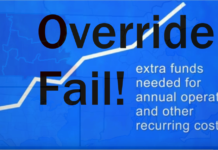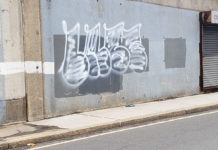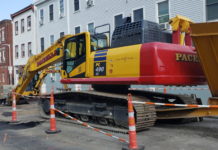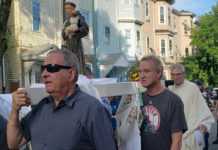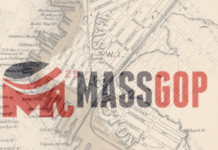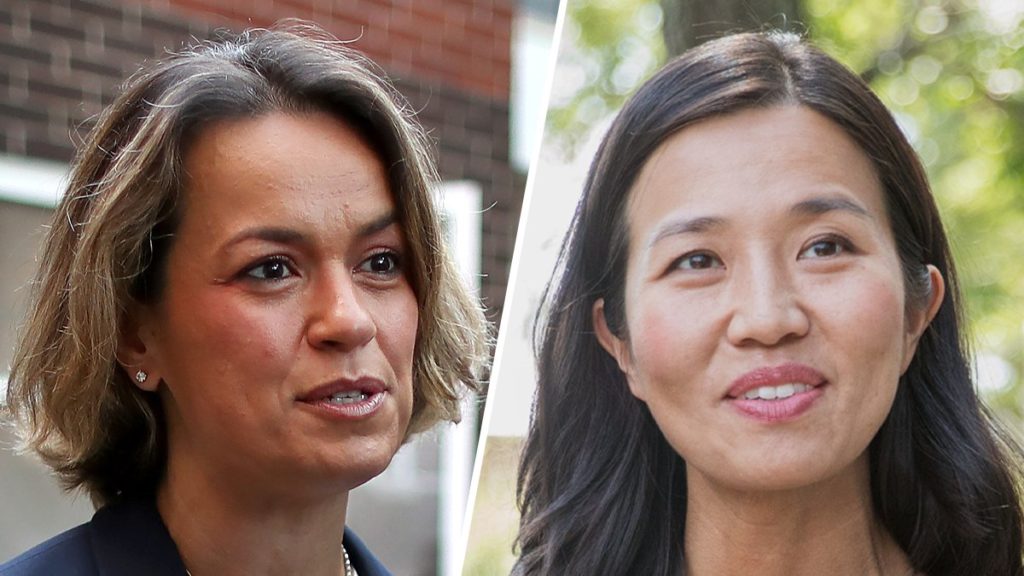
by MIKE FREEDBERG
Special to EastBoston.com
A friend from South Boston made this comment to me about the upcoming mayor election:
“So many people I know who are Annisa Essaibi George supporters, are not originally from Boston, including myself. Annissa is a crossover candidate and appeals to everyone.
“Here’s one example from a friend that has called Boston her home for nearly 20 years:
‘Wu is just too out there. I want to know how she’s going to make the T free when she has no jurisdiction over it. Why are you making promises you know are non-starters?’
“Another Boston voter: ‘I’m leaning towards Annissa. Boston works, so why do we need this drastic change?’ He also mentioned, everyone visiting his Charles Street shop, are also leaning towards Annissa.
“I’m pleased to report, after speaking with him, he and his partner are voting for Annissa. They’re South End residents.”
He added, “Many newcomers are not far left.”
This, to me, is the election in a nutshell: Michelle Wu’s transformative agenda or Annissa Essaibi George’s realistic proposals. Wu’s coming from Chicago, whereas Essaibi George was born in Boston (or as she puts it, “made in Boston.”)
Do we, the voters of Boston want – do we require – radical change? Is the city headed that far in a wrong direction, that it has to be yanked out of its course onto a new track? Or, is Boston doing quite well, moving forward at its own pace – a work in progress which certainly requires guidance and tweaking but not redirection?
On the way to that decision, voters are contending with a host of novel factors in a city which is not at all what it once was. Let’s talk about some of these factors:
Not since the first Mayor of Irish immigrant stock was elected some 150 years ago have the voters of Boston faced a Mayoral election as unprecedented as will take place on November 2nd. There has never been an elected woman Mayor: now voters must decide between two women. Not since the 1870s has a person not born in Boston been elected Mayor: the favorite to win this time is a Chicago native who came here to work for then Senate candidate Elizabeth Warren.
For well over a century immigrants and descendants of immigrants from Ireland and Italy dominated Boston (less so of Jewish heritage, but these were once numerous as well; there were also Polish and French-Canadian immigrants). All of these had come to Boston as refugees from poverty and famine or drawn here by work in the city’s thousands of factories and mills, the railroads, construction, utilities, and yes, for the city and our State.
Almost all of that is gone now.
Jobs “on the city” or the State were once readily there for those who worked on a campaign or were related to a Mayor, Councilor, or legislator. Today, patronage is a dirty word, and if you do get such a job, nine times out of ten you got it the same way you get a private sector job: as a good fit.” No favors given, and, more than ever, none asked.
Oddly enough, patronage jobs in City government faded away just as Boston’s Black Community began to be part of the political establishment. By 2013, when endorsement of Marty Walsh by most of the City’s Black leaders gave him the edge, patronage had all but disappeared. Now “merit” (which in practice favors the expensively educated) is the thing, and far too many Black activists found themselves left out. This time, there was no mistaking what they would do: spurn the “traditional” candidate in favor of she who promises to transform everything, including merit’s monopoly of city jobs.
Yet today, who would even ask for such jobs beyond the ranks of policy-driven young activists who populate the Michelle Wu campaign and, in part, that of her opponent, Annissa Essaibi George? After all, the campaigns being foisted upon us the voters aren’t people things, as they used to be; they’re data events. Most of the two campaign staffs are made up of young Internet communicators who contact voters via “vote builder’ voter files which cull the list of Boston voters – some 435,000 strong – for the 100,000 or so deemed “super voters” who always vote and therefore must be reached by some form of data-generated signal.
As for the rest of us, the 335,000 voters who don’t make the “super” cut, we are left to the winds of chance; we might vote but we are unlikely to get campaigned to even as data points. Whom we will vote for registers in the two campaigns only via the researches done by pollsters – at least there, we non-super people do occasionally have a say.
Thus, what is happening is happening chiefly among the policy activists. These don’t listen to the rest of us much either, but they do seem to get the major outlines of our big municipal issues: housing costs, public safety, parking, the sad inconsistency of our public schools, issues of personal identity, and sea rise due to climate change. Wu and Essaibi George offer very different agendas for reforming the failings herein.
Doubtless you’ve seen the advertorial-style mailings the two rivals have sent to super-voter doors. Among the nice photos, the campaigns colors, and the soft-gentility of the lettering, one can find, in the actual wording, nuances suggesting the two candidates’ differences.
These are not minor.
Essaibi George has recently pitched herself directly to the Boston-born. Wu has made no direct appeal to newcomers, but her go-big-or-go-home demolition agenda mirrors the views of many new to Boston people, who applaud the destruction of old, low-wage neighborhoods and their replacement by “high density”, ‘transit-oriented”: megaliths of “units” with no parking.
Climate is perhaps Wu’s biggest nut to crack. Her nutcracker also calls for free MBTA service, rent control (illegal in the Commonwealth of Massachusetts, by the way) to bring “affordability” into Boston housing, and a $25.00 parking sticker charge for those who insist on gumming up the works with personal gas-guzzlers.
Meanwhile, Essaibi George touts her mastery of the city’s public schools and all their challenges and successes. Here, major reform is urgent, on every front from financial inefficiency to an outdated busing order to unused capacity to poor performance in too many schools serving the most challenged students. The only prominent school proposal that Wu offers, so far as I can tell, is to alter the exam schools’ admissions from score on the entrance test to apportionment of admissions by zip code.
Lastly, the two take an opposite approach to city police. A few months ago, the City Council rejected an $865,000 State grant for police training. The vote was eight to four to reject. Essaibi George voted yes to the funds; Wu voted no.
Mike Freedberg is the editor and publisher of Here and Sphere.


